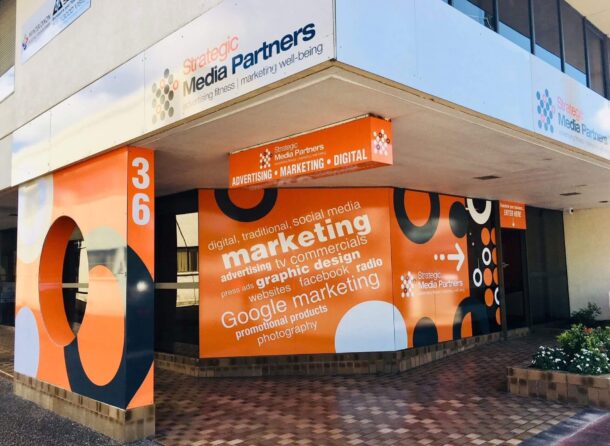
Good SEO (search engine optimisation) practitioners are aware of one undeniable truth: They are never finished learning.
Whether selling a product, writing a blog, or showcasing your services, every business needs a good website. You need to optimise your website and content to ensure that your website ranks well in Google and other popular search engines. This practice is known as search engine optimisation or SEO for short.
In the blog, we’ve included some tips to help you understand what SEO is including Local SEO and International SEO, why it’s important and how to get started.
What is Local SEO?
Local SEO, or local search engine optimisation, refers to optimising a business’s online presence to attract more local customers and increase visibility in local search results. In other words, it is the practice of optimising your website for a specific local area.
Local SEO aims to improve a business’s ranking in local searches, particularly in Google’s ‘Local Pack’ and Google Maps results. Local SEO tactics involve optimising a business’s website, Google My Business profile, and other online listings to ensure accuracy, consistency, and relevance to local search queries.
How does local SEO work?
Local SEO works by optimising various aspects of a business’s online presence to improve its visibility in local search results. Here’s how it works:
- Google My Business Optimisation: Creating and optimising a Google My Business (GMB) profile is crucial for local SEO. This includes providing accurate business information such as name, address, phone number (NAP), business hours, categories, and photos. A fully optimised GMB profile increases the chances of appearing in the Local Pack and Google Maps results.
- Local Keyword Optimisation: Using local keywords throughout the website content, meta tags, headings, and descriptions helps search engines understand the geographic relevance of the business. Local keywords typically include city names, neighbourhood names, and other location-specific terms that potential customers might use when searching for local businesses.
- NAP Consistency and Citations: Ensuring that the business’s name, address, and phone number (NAP) are consistent across all online directories, citation websites, and social media profiles is important for local SEO. Consistency builds trust with search engines and helps them verify the legitimacy and accuracy of the business information.
- Online Reviews and Ratings: Encouraging satisfied customers to leave positive reviews and ratings on platforms like Google My Business, Yelp, Facebook, and other relevant review websites is essential for local SEO. Positive reviews improve the business’s reputation and increase its visibility in local search results.
- Local Link Building: Acquiring backlinks from local websites, directories, industry-specific associations, and community organisations helps boost the business’s authority and relevance in local search. Local link-building signals to search engines that the business is trusted and respected within its local community.
- Localised Content: Creating high-quality, relevant, and localised content that addresses the needs, interests, and concerns of the local audience is key for local SEO. This includes creating blog posts, articles, event listings, and other types of content that resonate with local customers and establish the business as a valuable resource within the community.
- Integrating Schema Markup: One of the most important elements of your website is the correct LocalBusiness Schema markup. It helps convey to Google that you operate a local business and specify the area(s) you serve. While this might sound technical, our Local SEO plugin can handle it seamlessly. You’ll only need to input some details about your business, and our plugin will generate the appropriate Schema markup automatically. In addition to technically optimising your website for local searches, writing content tailored to a local audience is highly recommended.
By implementing these local SEO strategies effectively, businesses can improve their online visibility, attract more local customers, drive foot traffic to their physical locations, and ultimately increase sales and revenue within their local area.
What’s the difference with SEO in general?
Local SEO and SEO (search engine optimisation) share common goals of improving a website’s visibility in search engine results. Still, they focus on different aspects and target different audiences:
Scope
- SEO: SEO aims to optimise a website’s visibility on a broader scale, targeting global or national audiences.
- Local SEO: Local SEO targets local audiences within a specific geographic area, such as a city, region, or neighbourhood.
Target Audience
- SEO: SEO targets a wider audience, which may include users from different locations and regions.
- Local SEO: Local SEO targets users searching for products or services within a specific locality or region.
Keyword Focus
- SEO: SEO often focuses on general keywords and phrases related to a business’s products, services, or industry.
- Local SEO: Local SEO emphasises local keywords and phrases that include geographic indicators, such as city names, neighbourhood names, or location-specific terms.
Google My Business and Local Listings
- Local SEO: Local SEO involves optimising Google My Business profiles, local directories, and online listings to ensure accurate business information and enhance visibility in local search results.
- SEO: While SEO may also involve creating and managing business listings, it prioritises local directories and listings less than Local SEO.
Content Strategy
- SEO: SEO content strategies may focus on creating high-quality, informative content that appeals to a broad audience.
- Local SEO: Local SEO content strategies often include creating content that is relevant to the local community, such as local events, news, and community initiatives.
Link Building
- SEO: SEO strategies often involve building backlinks from various sources to improve a website’s authority and relevance in search engine rankings.
- Local SEO: Local SEO strategies may prioritise building local citations and acquiring backlinks from local websites, directories, and community organisations to improve local relevance and authority.
In summary, while SEO and Local SEO aim to improve a website’s visibility in search engine results, Local SEO specifically targets local audiences and focuses on optimising a website’s online presence for local searches within a specific geographic area.
4 tips on how to write for SEO 2024
Here are four important areas to consider when writing for SEO:
Website Structure (Follow Google’s best practices)
Your website should have pages that cover the basics like an overview or welcome, ‘about us’, contact us, what you can do for your customers and why they need you. Once you have those basics in place, you can expand your site over time.
Use analytics to discover the most popular landing pages on your site – the pages most visitors come to directly. Then you can make sure those pages are full of rich content that encourages sales activity.
Create a Helpful & Informative Content (Write for your audience)
Remember that search engines love good content. If you can write about your business in a way that’s interesting, helpful and informative then you’ll be rewarded with better search rankings – and better traffic. If you can’t do that yourself, pay someone who can. It’s worth the investment.
Keywords
Gone are the days when businesses could get to the top of search results simply by packing their web pages full of keywords. These days, if you try ‘keyword stuffing’ on your site it will probably be penalised or removed from listings altogether.
Keywords do still have their places. Use them in page meta-tags, as category tags and in page titles. But use them sparingly and sensibly and choose ones that are relevant to your business. Services such as Google’s AdWords Keyword Planner and Google Trends can help you.
Accessibility
Make sure your site can be viewed on different devices and browsers. Check it on a smartphone, a laptop and a tablet, and any browsers you can find. Does it work well on all of them? If not, get your web developer to fix it so that it does. Your website should be accessible to everyone, whatever device they’re using.
If you do SEO properly, the majority of your web traffic will find your site via a search engine, like Google. That means sales leads for your business, so it’s important to get it right.
Want to rank locally with your WordPress website?
Are you a small business owner catering to local clients? Are you tired of watching your competitors consistently outrank you in online searches? It’s time to level the playing field and boost your online presence!
As a small business, attracting local customers is vital for growth and success. However, if your competitors dominate search engine results, you may miss out on valuable opportunities. But don’t worry – there are strategies to help you compete effectively in your local market.
With targeted local SEO tactics, you can improve your website’s visibility and outrank your competition. By optimising your online presence, including your website, Google My Business profile, and local listings, you can ensure that your business appears prominently in local search results.
To find out more about how you can improve your online presence, contact SMP for a fully supported Digital Performance Report.
Don’t let your competition steal the spotlight any longer. Take control of your online presence and attract more local customers today!

